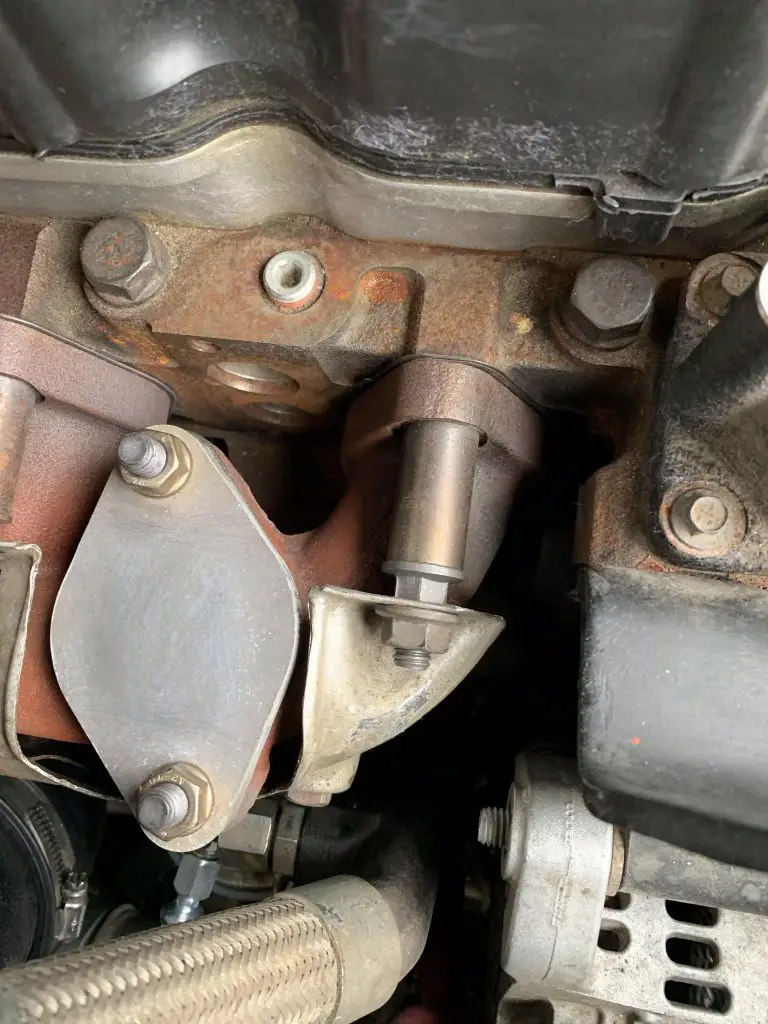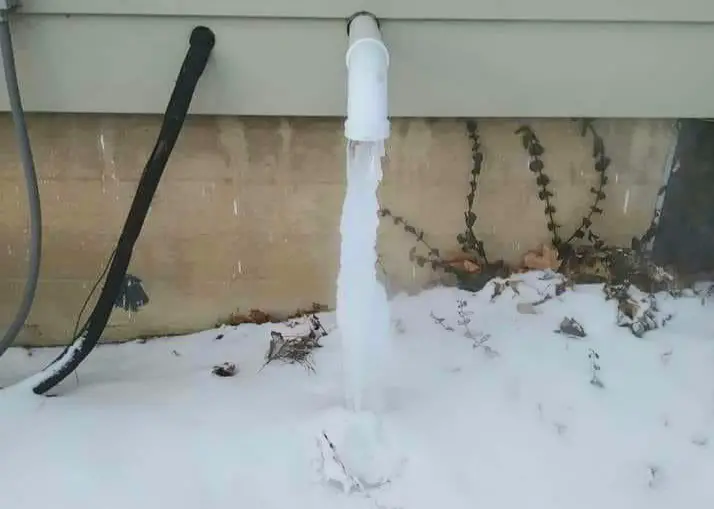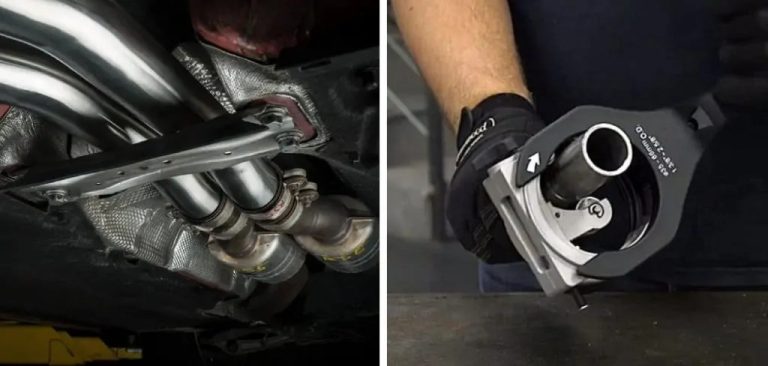Exhaust System Winter Maintenance: Shielding Against Corrosion and Freezing
Exhaust system winter maintenance protects against corrosion and freezing. In this article, we will explore the importance of maintaining your vehicle’s exhaust system during the winter months to prevent damage caused by corrosion and freezing temperatures.
Freezing temperatures and harsh winter conditions can cause corrosion and rust on the exhaust system, leading to decreased performance and potential safety hazards. By following a few simple maintenance tips, such as regularly inspecting the system for damage, cleaning any debris or salt buildup, and ensuring proper insulation, you can protect your exhaust system and extend its lifespan.
Read on to discover how to keep your exhaust system in optimal condition throughout the winter season.

Credit: knisleyexhaust.com
How Winter Affects Your Exhaust System
Winter can have a significant impact on your vehicle’s exhaust system, especially when it comes to freezing temperatures. Freezing temperatures can cause various issues that affect the functioning and longevity of the exhaust system. One major concern is the risk of corrosion during the winter months.
The combination of moisture and road salt can accelerate the corrosion process, leading to rust and potential damage to the exhaust system. It is essential to protect your exhaust system from these corrosive elements by implementing proper maintenance measures. Regularly inspecting the system, cleaning off any accumulated salt, and applying protective coatings can help prevent corrosion.
Additionally, avoiding prolonged exposure to cold weather and using the vehicle regularly can help maintain the exhaust system’s internal temperature and reduce the risk of freezing and subsequent damage. By taking these steps, you can keep your exhaust system in optimal condition throughout the winter season.
Signs Of Exhaust System Corrosion
Exhaust system corrosion can be detrimental, especially during winter. Recognizing the symptoms is crucial to take prompt action. Signs such as rust spots, holes, or a foul smell indicate corrosion. Continuous exposure to road salt and moisture are common causes of this issue.
To minimize corrosion, regular maintenance is necessary. Cleaning the exhaust system, inspecting for signs of damage, and replacing corroded parts are essential preventive measures. Applying an anti-corrosion coating can also help protect against further damage. It is crucial to address corrosion promptly to prevent freezing and potential exhaust leaks, as these can lead to engine malfunctions and reduced fuel efficiency.
By being proactive and following these measures, you can ensure your vehicle’s exhaust system stays corrosion-free and operates optimally throughout the winter season. So, take action and protect your exhaust system from corrosion to maintain a smooth and efficient driving experience.
Preventing Corrosion And Freezing In Your Exhaust System
Preventing corrosion and freezing in your exhaust system is crucial, especially before winter arrives. Inspecting and maintaining your exhaust system should be a priority to ensure its functionality during the cold months. Choosing the right material for your exhaust system is essential to resist corrosion and freezing.
Applying protective coatings can also help prevent corrosion. Best practices for winter driving and exhaust system maintenance include avoiding excessive idling and regularly checking for any leaks or damage. By following these steps, you can protect your exhaust system from corrosion and freezing, ensuring its long-term functionality and performance.
Proper maintenance is key to a smooth and trouble-free driving experience throughout the winter season.
Winterizing Your Exhaust System
Winterizing your exhaust system is essential to protect it against corrosion and freezing temperatures. Insulating and shielding your exhaust system prevents potential damage caused by extreme cold weather conditions. One way to achieve this is by using heat shields or insulation wraps.
These shields or wraps offer numerous benefits, including reducing heat loss, preventing condensation, and increasing overall performance. Installing heat shields or insulation wraps is a relatively simple process, but a few tips can make the task easier. Ensure proper fitting, choose high-quality materials, and follow instructions carefully.
By taking the necessary steps to winterize your exhaust system, you can prolong its lifespan and avoid costly repairs. So, make sure to insulate and shield your exhaust system for a trouble-free winter season.
Clearing Snow And Ice From Your Exhaust System
Snow and ice buildup in your exhaust system can pose serious risks. To ensure safety, it’s crucial to remove them properly. First, wait for the vehicle to cool down before starting the process. Then, use a snow brush or a broom to clear the snow and ice from the tailpipe and surrounding areas.
Be cautious not to damage the exhaust pipe or any other components. Gentle tapping or shaking can help dislodge stubborn ice. Avoid using hot water as it can cause rapid temperature changes and lead to cracks or even a shattered exhaust system.
Regularly inspect your exhaust system for signs of corrosion or damage caused by freezing. If you notice any issues, consult a professional for repairs or maintenance. By taking these precautions, you can protect your exhaust system from corrosion and freezing during the winter months.
Cleaning Your Exhaust System For Winter
Regular cleaning of your exhaust system is essential to prevent corrosion and ensure its proper functioning. Neglecting this maintenance task can lead to the accumulation of dirt, debris, and corrosive substances in your exhaust system, especially during winter when road salt and moisture are prevalent.
By removing these harmful elements, you can protect your exhaust system from corrosion and freezing, prolonging its lifespan. Fortunately, cleaning your exhaust system is a relatively simple process that can be done using common tools such as a brush, degreaser, and a hose.
Start by brushing away any visible dirt and grime, then apply a degreaser to break down stubborn grease and oil residues. Finally, rinse the system thoroughly with a hose, ensuring all cleaning agents are washed away. Regular cleaning and maintenance will keep your exhaust system in optimal condition and save you from costly repairs down the line.
Monitoring And Maintaining Your Exhaust System During Winter
Maintaining your exhaust system during winter is crucial for preventing corrosion and freezing. By inspecting your exhaust system regularly, you can detect potential issues early on. Look for signs of damage or wear, such as rust, leaks, or loud noises.
Address minor issues promptly to avoid them turning into major problems. Make sure all components are securely attached and properly aligned. Check for any loose or damaged hangers, brackets, or clamps. It’s also important to keep an eye on the exhaust manifold, catalytic converter, and muffler.
Consider using a rust-resistant coating or wrapping to protect your exhaust system from the harsh winter elements. Regular maintenance and timely repairs will help extend the lifespan of your exhaust system and ensure optimal performance throughout the winter months.
Frequently Asked Questions For Exhaust System Winter Maintenance: Protecting Against Corrosion And Freezing
How Does Winter Weather Affect Exhaust Systems?
During winter, cold temperatures can cause condensation in the exhaust system, leading to corrosion. Additionally, freezing temperatures can create ice blockages in the exhaust, which can negatively impact engine performance.
What Are The Signs Of Exhaust System Corrosion?
Signs of exhaust system corrosion include rust spots or holes on the exhaust pipes, a strong smell of exhaust fumes inside the vehicle, and louder than usual engine noise. If you notice any of these signs, it’s important to address the issue promptly.
Can I Prevent Exhaust System Corrosion In Winter?
Yes, you can prevent exhaust system corrosion in winter by regularly inspecting and maintaining your exhaust system. This includes keeping the system clean, replacing damaged components, and applying a protective coating to prevent corrosion.
How Can I Prevent Freezing In My Exhaust System During Winter?
To prevent freezing in your exhaust system during winter, it’s important to warm up your vehicle before driving and avoid short trips when possible. This allows the system to heat up and eliminates moisture that can freeze inside the exhaust.
When Should I Seek Professional Help For My Exhaust System?
If you notice any signs of exhaust system corrosion or freezing, it’s best to seek professional help immediately. A certified mechanic can inspect and diagnose the issue accurately, and perform the necessary repairs or replacements to ensure your exhaust system’s optimal performance.
Is Exhaust System Maintenance Necessary Every Winter?
Yes, exhaust system maintenance is necessary every winter to protect against corrosion and freezing. Regular maintenance can help extend the lifespan of your exhaust system, prevent costly repairs, and ensure your vehicle’s safety and performance in cold weather conditions.
Conclusion
Maintaining your exhaust system during winter is crucial to protect against corrosion and freezing. By following the guidelines provided in this blog post, you can ensure the longevity and efficiency of your vehicle’s exhaust system. Regularly inspecting for visible signs of damage, such as rust or leaks, and addressing them promptly can help prevent costly repairs down the line.
Additionally, using high-quality exhaust system protection products and driving responsibly in extreme weather conditions can further safeguard against corrosion and freezing. Remember to schedule regular maintenance checks with a qualified mechanic, who can provide professional guidance and address any concerns regarding your exhaust system.
In doing so, you can enjoy worry-free driving during the winter months and extend the lifespan of your exhaust system. Stay safe, and keep your vehicle performing at its best all year round.



